The shift in the jet stream in June has brought significant variations in South America’s weather conditions. Rio de Janeiro experienced its sunniest winter in almost two decades, while southern Argentina has seen its cloudiest winter, according to analysis using the Solcast API.
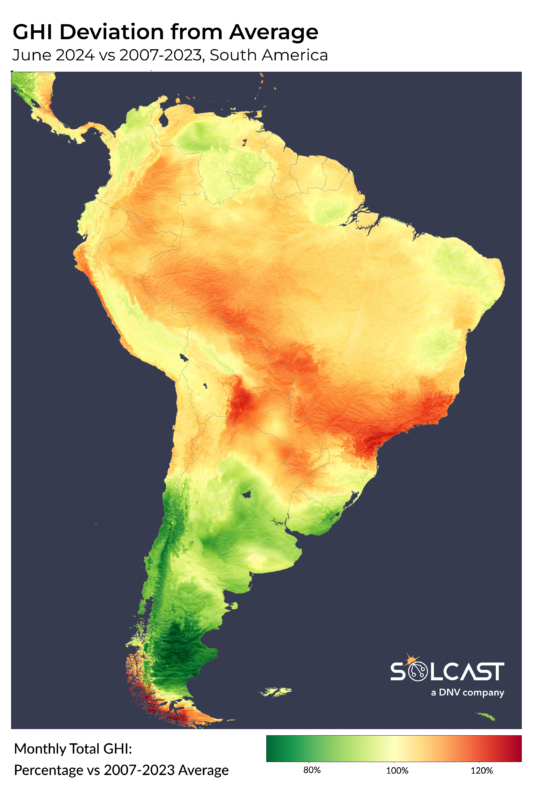
Rio de Janeiro recorded the sunniest June in over 18 years, with solar irradiance 15% above the long-term average. This was part of a band of higher than average sunshine extending through Bolivia, Paraguay, and parts of Brazil. The jet stream stayed further south than usual, creating a stable upper atmosphere over these regions that suppressed cloud formation, resulting in sunnier and warmer conditions than typically expected for this time of year.
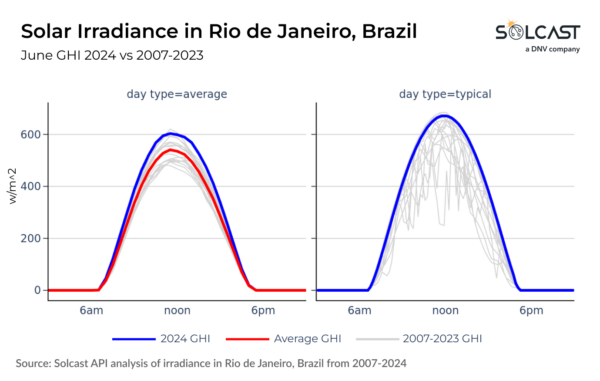
Conversely, southern Argentina saw an irradiance drop of up to 30% below the long-term average as it experienced its cloudiest June in the same period. The anomalous jet stream position increased atmospheric instability, causing winter-time cold fronts to remain further
south.
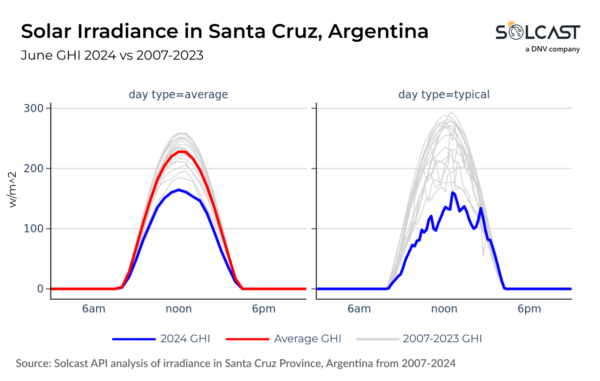
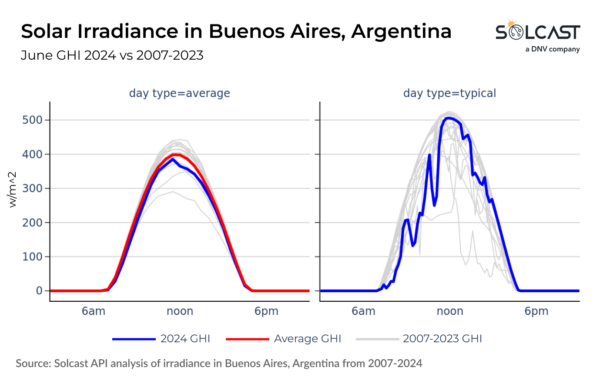
In the central-eastern part of Argentina, Buenos Aires saw a more moderate decrease in irradiance, about 10% below the typical level, showing the broader impact of these unusual weather patterns.
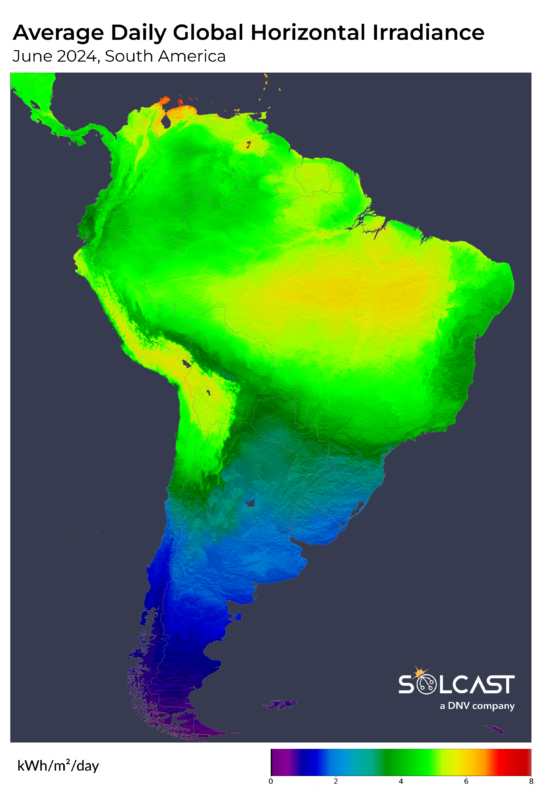
June, a winter month in South America, naturally has the lowest total irradiance due to the midday sun reaching its lowest point at the Winter Solstice on June 20. While the sun's position dictates the maximum available sunlight, local cloud cover significantly influences
the actual irradiance reaching the surface driving inter-annual variability.
Solcast produces these figures by tracking clouds and aerosols at 1-2km resolution globally, using satellite data and proprietary AI/ML algorithms. This data is used to drive irradiance models, enabling Solcast to calculate irradiance at high resolution, with typical bias of less than 2%, and also cloud-tracking forecasts. This data is used by more than 300 companies managing over 150GW of solar assets globally.
The views and opinions expressed in this article are the author’s own, and do not necessarily reflect those held by pv magazine.
This content is protected by copyright and may not be reused. If you want to cooperate with us and would like to reuse some of our content, please contact: editors@pv-magazine.com.
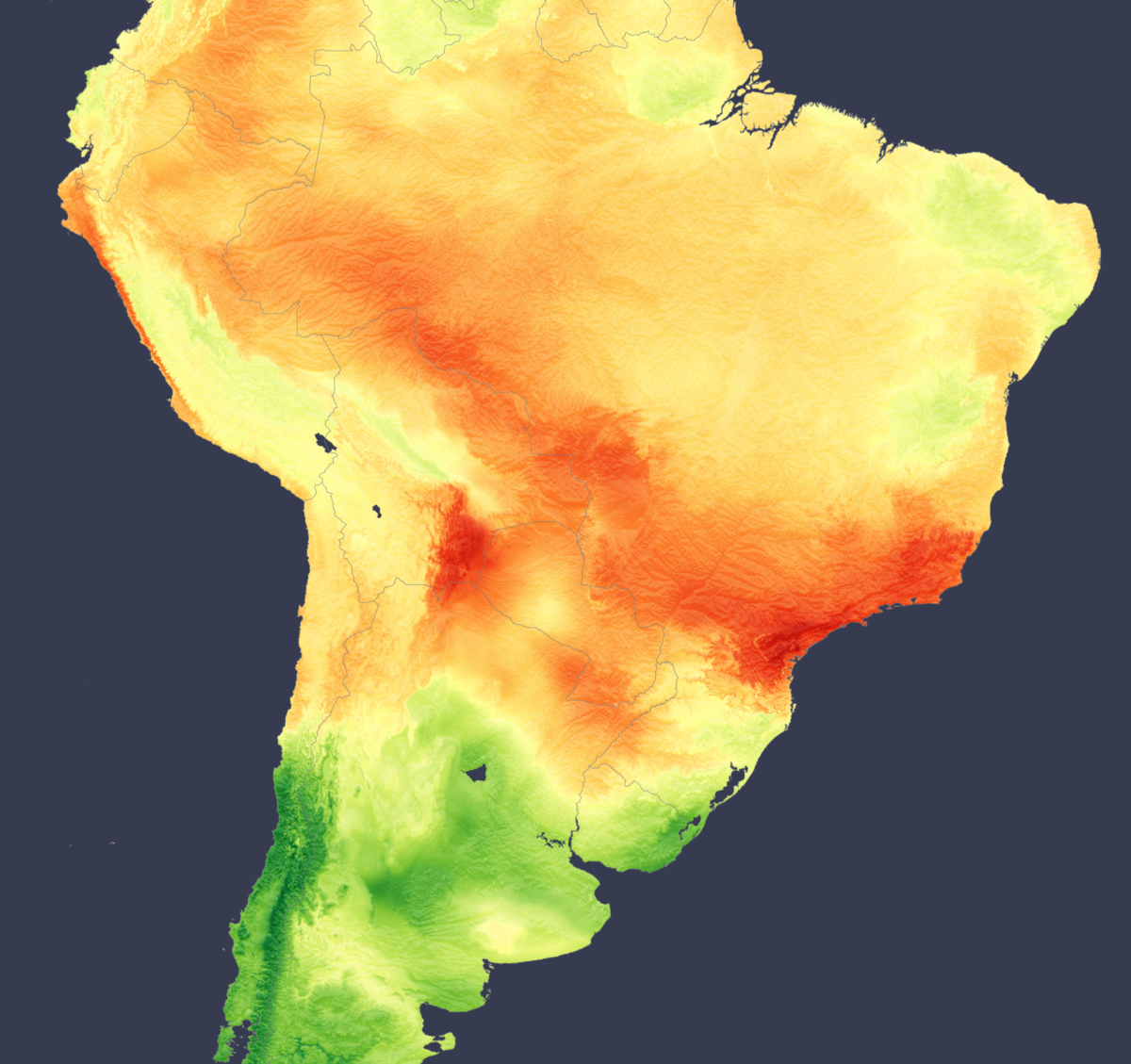


By submitting this form you agree to pv magazine using your data for the purposes of publishing your comment.
Your personal data will only be disclosed or otherwise transmitted to third parties for the purposes of spam filtering or if this is necessary for technical maintenance of the website. Any other transfer to third parties will not take place unless this is justified on the basis of applicable data protection regulations or if pv magazine is legally obliged to do so.
You may revoke this consent at any time with effect for the future, in which case your personal data will be deleted immediately. Otherwise, your data will be deleted if pv magazine has processed your request or the purpose of data storage is fulfilled.
Further information on data privacy can be found in our Data Protection Policy.